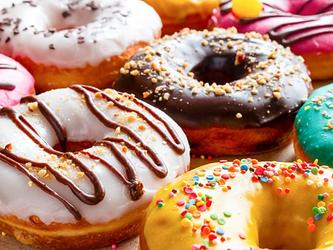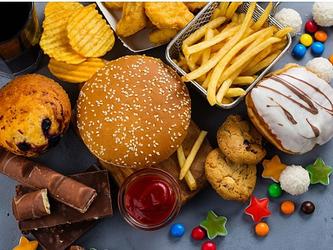Unhealthy foods advertising ban to start next year
The Department of Health and Social Care said that the restrictions would only allow HFSS advertising between 9pm and 5.30am, and will apply to television and on-demand programming.
The online restrictions will be limited to paid-for advertising to ensure brands can advertise on their own blog, website, app or social media page.
The restrictions will apply to all businesses with 250 or more employees that make and/or sell HFSS products, meaning small and medium businesses can continue advertising.
Only HFSS food and drink products of most concern to childhood obesity will be banned from advertising, meaning products such as honey, olive oil, avocados and marmite are excluded from the restrictions.
An Office for Health Promotion will be set up later this year to help improve the nation’s health and fight obesity.
The government said the restrictions were needed as children see a significant amount of unhealthy food adverts on TV and existing regulation does not account for the amount of time children are spending online.
It is estimated by the government that there were around 2.9 billion child HFSS TV impacts and 11 billion impressions online in the UK in 2019.
Jo Churchill, public health minister, said: “The content youngsters see can have an impact on the choices they make and habits they form.
“With children spending more time online it is vital we act to protect them from unhealthy advertising.”
Advertising bodies have criticised the HFSS restrictions. Jon Mew, chief executive of IAB UK, said the organisation had repeatedly suggested smarter, digital-first solutions to further restrict children’s exposure to HFSS ads online “without inflicting unnecessary damage on the advertising, media and hospitality industries”.
Mew added: “I am staggered that, in the face of so much evidence showing that it will have next to no impact on childhood obesity rates, the government continues to pursue headline-grabbing, hollow actions with today’s confirmation of an HFSS online advertising ban.
“The government is pressing ahead with a bad policy that creates an unequal media landscape and, in reality, will do little to improve the critical issue of childhood obesity.”
Sue Eustace, public affairs director at the Advertising Association, said: “Content providers – online publishers and broadcasters – will lose vital advertising revenue to fund jobs in editorial and programme-making.
“We all want to see a healthier, more active population, but the government’s own analysis shows these measures won’t work.
“Levelling up society will not be achieved by punishing some of the UK’s most successful industries for minimal effect on obesity levels.”
Richard Lindsay, legal and public affairs director at the Institute of Practitioners in Advertising, said: “The bans will grab headlines and suggest that government is doing ‘something’, but what it is doing is misguided and will serve only to damage businesses, not protect children’s health.
“A TV watershed restriction will not target children and an online ban ignores more effective measures that would see technology being harnessed to reduce children’s exposure to certain types of ads without damaging businesses. The devil will be in the detail, but loud headlines do not mean good policy.”

We hope you enjoyed this article.
Research Live is published by MRS.
The Market Research Society (MRS) exists to promote and protect the research sector, showcasing how research delivers impact for businesses and government.
Members of MRS enjoy many benefits including tailoured policy guidance, discounts on training and conferences, and access to member-only content.
For example, there's an archive of winning case studies from over a decade of MRS Awards.
Find out more about the benefits of joining MRS here.














0 Comments